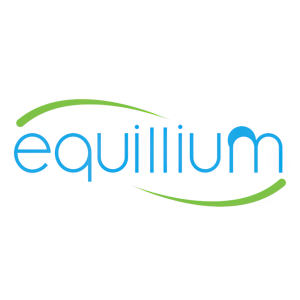Equillium Announces Additional Patient Data at ASH 2021 Demonstrating Continued Positive and Durable Clinical Responses in Acute Graft-Versus-Host Disease Patients Treated with Itolizumab
Data from EQUATE study continues to show rapid and durable complete responses, resulting in clinically meaningful reduction in corticosteroid use
Pivotal study in aGVHD to commence in early 2022
“The six-month data, which includes five additional patients – all dosed at 0.8 mg/kg – continues to demonstrate the potential clinical value of itolizumab in this patient population who have no alternatives to steroids. I am encouraged to see that the early complete response rates seen in these extremely sick, high-risk aGVHD patients are maintained, as well as the concomitant reduction in systemic corticosteroid use, even after cessation of treatment for over four months,” said
Data from 25 patients treated with itolizumab (0.4, 0.8 or 1.6 mg/kg) were presented. In patients treated within 3 days of first steroid administration (n=18), Day 29 complete response rates were
“As we collect additional data from the EQUATE study, we are encouraged by the continued promising impact that itolizumab has on the lives of patients with high-risk aGVHD,” said
Details of Itolizumab Data Presented at ASH 2021
Title: Itolizumab, a Novel Targeted Anti-CD6 Therapy, in Combination with Corticosteroids, Is Well-Tolerated, with Rapid Pharmacodynamic and Clinical Response in Newly Diagnosed Acute Graft-Versus-Host Disease
First Author: Dr.
Session
Publication Number: 2891
Title: Antigenic Modulation of CD6 By Itolizumab Is a New Mechanism for Effector T Cell Inhibition
First Author:
Session
Publication Number: 995
In addition to these presentations, abstracts were published online in the November supplemental issue of Blood. To view the poster presentations, visit the Publications & Presentations page of Equillium’s website: https://www.equilliumbio.com/technology/publications-presentations/default.aspx.
About Graft-Versus-Host Disease (GVHD)
GVHD is a multisystem disorder that is a common complication of allogeneic hematopoietic stem cell transplants (allo-HSCT) caused by the transplanted immune system recognizing and attacking the recipient’s body. Symptoms of GVHD include rash, itching, skin discoloration, nausea, vomiting, diarrhea, and jaundice, as well as eye dryness and irritation.
GVHD is the leading cause of non-relapse mortality in cancer patients receiving allo-HSCT, and its risk limits the number and type of patients receiving HSCT. GVHD results in high morbidity and mortality, with five-year survival of approximately
About the EQUATE Study
The EQUATE study is a Phase 1b/2 trial to evaluate the safety, tolerability, pharmacokinetics, pharmacodynamics and clinical activity of itolizumab for first-line treatment in patients who present with aGVHD (NCT 03763318). The Phase 1b part of the trial is an open-label dose escalation study in adult patients who present with high-risk aGVHD and typically respond poorly to steroids. The Phase 1b data will inform selection of the dose to be used in the next phase of development for the program.
About Itolizumab
Itolizumab is a clinical-stage, first-in-class anti-CD6 monoclonal antibody that selectively targets the CD6-ALCAM signaling pathway to selectively downregulate pathogenic T effector cells while preserving T regulatory cells critical for maintaining a balanced immune response. This pathway plays a central role in modulating the activity and trafficking of T cells that drive a number of immuno-inflammatory diseases.
About
For more information, visit www.equilliumbio.com.
Forward Looking Statements
Statements contained in this press release regarding matters that are not historical facts are "forward-looking statements" within the meaning of the Private Securities Litigation Reform Act of 1995. Because such statements are subject to risks and uncertainties, many of which are outside of the Company’s control, actual results may differ materially from those expressed or implied by such forward-looking statements. Such statements include, but are not limited to statements regarding the potential benefit of treating patients with aGVHD, uncontrolled asthma, or lupus/lupus nephritis with itolizumab, Equillium’s plans and expected timing for developing itolizumab including the expected timing of initiating, completing and announcing further results from the EQUATE, EQUIP, and EQUALISE studies, the potential for any of Equillium’s ongoing or planned clinical studies to show safety or efficacy, statements regarding the impact of new leadership team members, Equillium’s anticipated timing of regulatory review and feedback, Equillium’s cash runway, and Equillium’s plans and expected timing for developing itolizumab and potential benefits of itolizumab. Risks that contribute to the uncertain nature of the forward-looking statements include: uncertainties related to the abilities of the leadership team to perform as expected; Equillium’s ability to execute its plans and strategies; risks related to performing clinical studies; the risk that interim results of a clinical study do not necessarily predict final results and that one or more of the clinical outcomes may materially change as patient enrollment continues, following more comprehensive reviews of the data, and as more patient data become available; potential delays in the commencement, enrollment and completion of clinical studies and the reporting of data therefrom; the risk that studies will not be completed as planned; Equillium’s plans and product development, including the initiation and completion of clinical studies and the reporting of data therefrom; whether the results from clinical studies will validate and support the safety and efficacy of itolizumab; changes in the competitive landscape; uncertainties related to Equillium’s capital requirements; and having to use cash in ways or on timing other than expected and the impact of market volatility on cash reserves. These and other risks and uncertainties are described more fully under the caption "Risk Factors" and elsewhere in
View source version on businesswire.com: https://www.businesswire.com/news/home/20211213005294/en/
Investor Contact
Vice President, Investor Relations & Corporate Communications
619-302-4431
ir@equilliumbio.com
Media Contacts
Aljanae Reynolds
areynolds@wheelhouselsa.com
Source:







